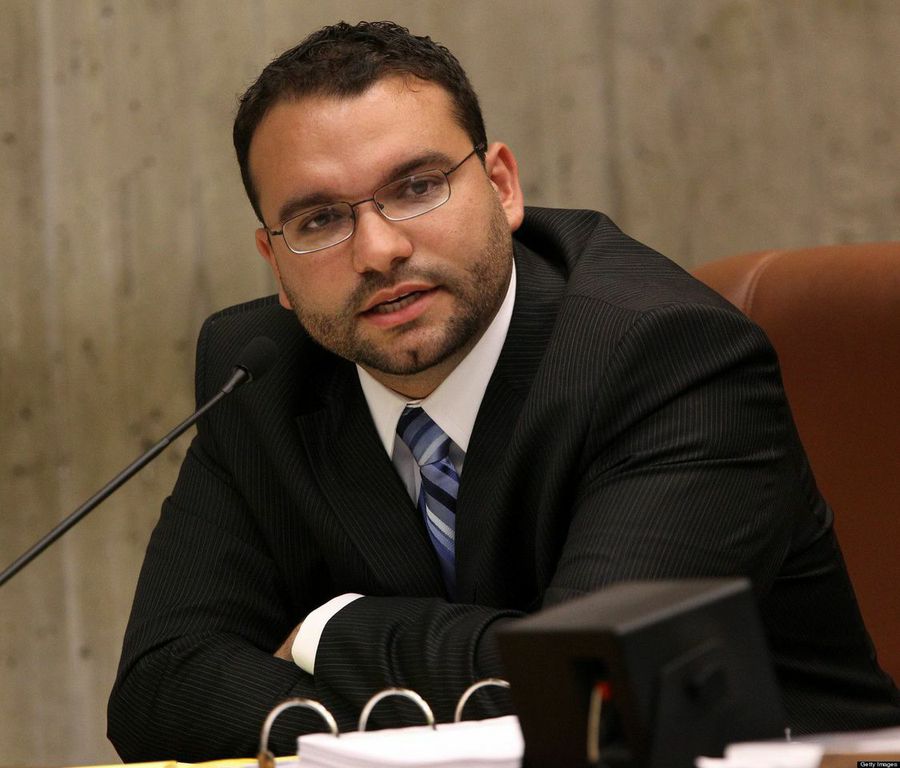BOSTON, Mass.—When it comes to treating Latino patients with chronic mental health illnesses, social and cultural activities such as cooking and playing board games can be an important part of their recovery.
The Connexions Day Treatment Program at the North Suffolk Mental Health Association is a short-term day and evening program offered in English, Spanish, and Vietnamese to adults recovering from mental illness and addictions at the East Boston Counseling Center.
Magda Trujillo, the program manager, and Nancy Melendez, a bilingual clinician, combine traditional medical treatments and individual and group counseling sessions with these activities, which have been proven to benefit their patients. The Latino group, mostly from East Boston, comes to the center three times a week.
“For Latino patients, cooking is sacred,” Melendez says. The patients collaborate on cooking gourmet-style breakfasts and lunches, a process that starts by going grocery shopping with their therapists and finishes by cleaning up after eating.
“It’s part of their therapy,” Malendez says. “The kitchen makes them feel that they are progressing and healing. They feel like they can manifest themselves and their personalities through cooking.”
Board games – specifically el dominó – and coffee breaks at the end of the week also help to build a support system so that the participants can share thoughts and concerns with their therapists. “I’m always with them,” Melendez says. “We laugh, we talk about their families, their children, their health, their doctor visits, everything.”
Spirituality, which is often Christian or Catholic, also plays an important role in the Latino community. “I’ve seen them get better. You can immediately see the difference in the ones that are going to church, read the Bible, the ones that preach, or even listen to Christian music,” Melendez says.
The most common forms of mental illness experienced by the Latino community are post traumatic stress disorder, depression, schizophrenia and substance abuse, according to Melendez. In fact, if the current rates continue, one person in every 2,300 will die due to substance abuse this year in East Boston, according to the Boston Public Health Commission. This is a higher risk compared to the Greater Boston community at large, where the rate is one person per every 3,000.
Felix Arroyo, the chief of health and human services for the City of Boston, believes that machismo, in which men must be strong and aggressive, is problematic because it gets in the way of people seeking mental health help. “Culturally, there’s a way we deal with heartache and pain. You get proud of the kid who doesn’t cry. We culturally often teach what toughness is and the definition of strength, which often is to bottle it up. People feel things they just don’t show in front of anybody else,” he says.
Melendez believes that a Latino suffering from a mental illness often has to make a doubled or tripled effort in order to seek help. “The social aspect of being labeled as ‘You’re crazy and you’re not crazy’ backs up the cultural stigma we are trying to fight against,” she says.
Arroyo says another major challenge to accessing health care for Latinos with mental health conditions is finding physicians who are Spanish speakers. “I know as a fact that Spanish-speaking psychiatrists are very hard to find. Very few hospitals and centers have Spanish-speaking psychiatrists because there is a huge demand. That also [means] that you could be in a wait list for years,” he says.
Trujillo says practitioners are often faced with a question: “If not us, who?” “Sometimes we find ourselves struggling to find the service needed,” she says. “But due to scarcity, it’s a problem. There are many other places that offer these services in English, but without the ability to provide it in one’s native language, the service is weak and not often effective.”
Trujillo says an important part of treating mental health conditions is the establishment of relationships between patients and providers, something she believes to be necessary when it comes to the Latino community. “Sometimes providers lack empathy when it comes to treating patients who are immigrants,” she points out. “There is a perception of poverty in general from the providers. These affect the patient, their families, and their mental health.”
Since its beginnings in the 19th century, East Boston has been home to various immigrant communities. But more recently, it has become the home to many immigrants from Asia, the Caribbean, and Central and South America, increasing the number of Latinos to more than half of the population.
“I believe there is a black and white difference,” Melendez, says, referring to immigrants and native residents seeking mental health care. As mentioned before, the language barrier is a difficult one to overcome, but the lack of awareness of mental health conditions in the community can impair a patient’s way to recovery. “[As Latinos] we often feel sorry or afraid to ask for help,” Melendez says.
In Boston, community organizations as well as clinics and centers such as the North Suffolk Mental Health Association are currently treating thousands of people who seek mental health care. Although language and culture in immigrant communities often act as barriers to access, they can also be effective tools used by practitioners when treating mental illnesses and conditions.

Leave a Reply
You must be logged in to post a comment.